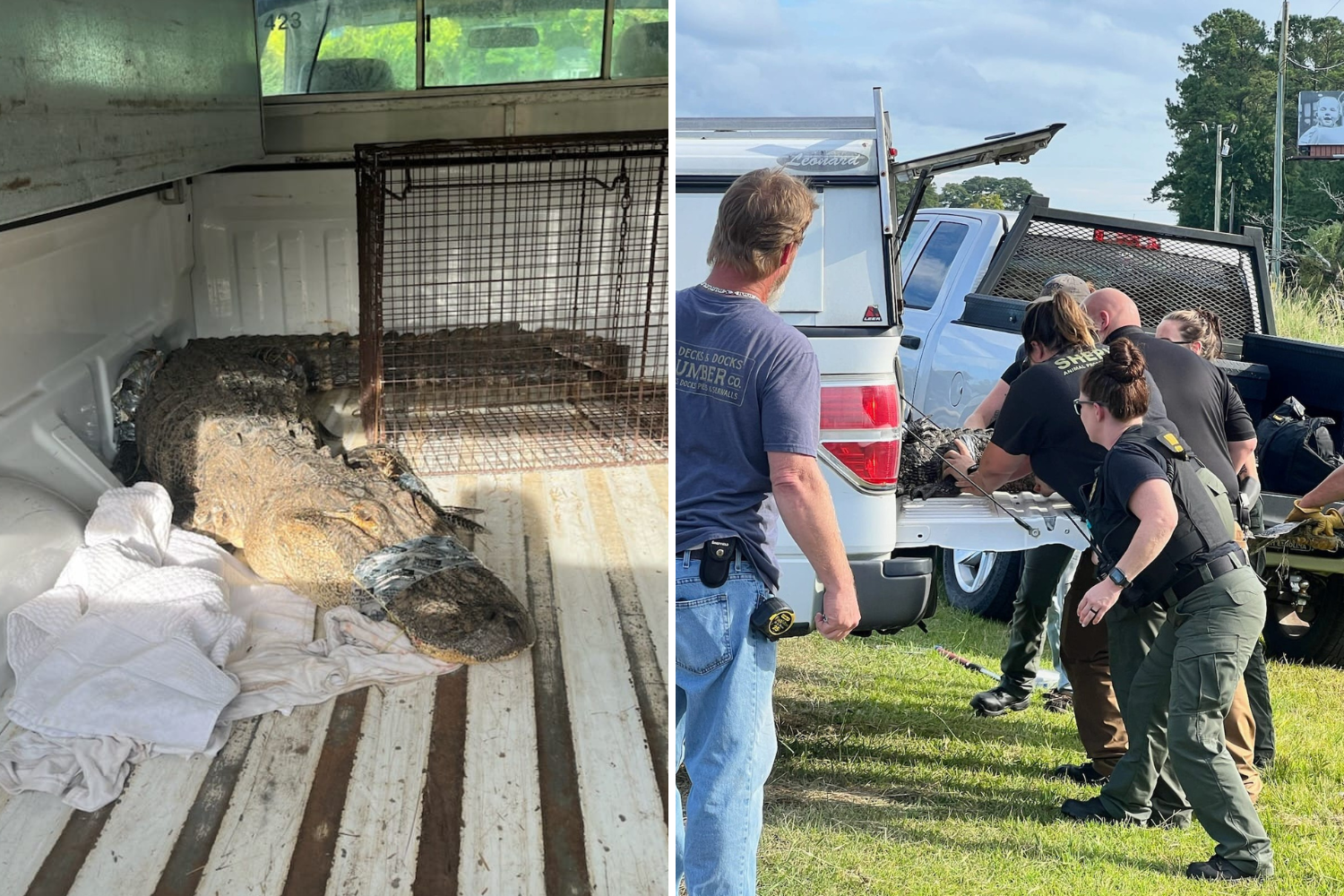The Craven County Sheriff’s Office in North Carolina recently dealt with a rather unusual situation: an alligator on the highway. Last week, they received a call about an alligator that had been hit by a car while attempting to cross Highway 70.
Fortunately, the gator sustained only minor injuries, specifically to its back leg. The sheriff’s Animal Protective Services (APS) quickly mobilized to respond, sharing updates on their Facebook page: “We received a call about an alligator that was crossing Highway 70 and got hit by a vehicle. Luckily, it only suffered minor injuries to its back leg and was okay.”
The APS collaborated with local wildlife experts, including NC Wildlife Resources Commission biologist Chris Kent and others, to ensure the alligator’s safe transport. Together, they moved the gator to a secure location and tagged it for tracking, which is essential for monitoring the health of local alligator populations and maintaining ecological balance.

Additionally, the sheriff’s office expressed gratitude to the deputies who managed traffic and helped lift the sizeable reptile, stating, “We are grateful to the Craven County Sheriff’s Office deputies for assisting with traffic control and lifting the heavy alligator.”
Alligators are native to North Carolina, especially in coastal regions like Craven County. Although spotting one on a busy road isn’t common, these encounters are becoming more frequent due to roadways infringing on natural habitats.
Local residents showed their appreciation on Facebook with supportive comments like, “Thank y’all for what you do!!! We love you!!!” from Sheila Haller and “Great work!!” from Lisa Nelson. Vickie Ann raised a valid point, emphasizing, “Road going right thru their habitat and they are so confused.”
While alligators are generally well-received by the community, they can become a nuisance. Limited hunting of alligators is allowed in North Carolina, particularly in southeastern counties, responding to an increase in both gator and human populations. The North Carolina Wildlife Resources Commission has established specific regulations, permitting hunting only through population control requests from municipalities.
